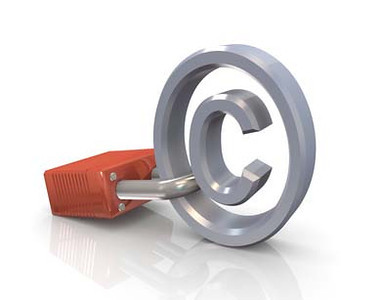Is Your Blog a Copyright Infringement Suit Waiting to Happen?
Posted: May 31, 2012
[caption id="attachment_10177" align="alignright" width="382"] © nasir1164 - Fotolia.com[/caption]Your blog may be infringing on someone elses copyright, or someone else might be infringing on your copyright. Legalzoom tells you how to take steps to make sure you're not violating copyright laws, and how to protect your work.
© nasir1164 - Fotolia.com[/caption]Your blog may be infringing on someone elses copyright, or someone else might be infringing on your copyright. Legalzoom tells you how to take steps to make sure you're not violating copyright laws, and how to protect your work.
[caption id="attachment_10177" align="alignright" width="382"] © nasir1164 - Fotolia.com[/caption]Your blog may be infringing on someone elses copyright, or someone else might be infringing on your copyright. Legalzoom tells you how to take steps to make sure you're not violating copyright laws, and how to protect your work.
© nasir1164 - Fotolia.com[/caption]Your blog may be infringing on someone elses copyright, or someone else might be infringing on your copyright. Legalzoom tells you how to take steps to make sure you're not violating copyright laws, and how to protect your work.
If you have a blog that you regularly update, have you ever wondered if your postings might infringe someone’s copyright—or that your work might be, as you read this, posted somewhere else without your permission, in ways you did not intend?
These are legitimate concerns, since many blogs—yours included—often feature outside content, and are open to the entire viewership of the Internet, otherwise known as the entire free world. Although it may be easy to cut and paste images, articles, videos and other works to a blog, copyright law and infringement litigation are alive and well in the United States and abroad—at last count, the Berne Convention (the leading international copyright treaty) had 165 members. So knowing what’s protected and how to protect your own work will hopefully keep what’s yours, yours—and also keep you from being sued.
Is the Work Protected?
The first thing to note is, not all published information is protected. A copyright protects original works of authorship such as articles, artistic performances, photographs, music, poetry, songs, computer software and architecture—it doesn’t protect facts, common knowledge, ideas or systems. Additionally, some work that was once protected may now be in the public domain, if the copyright holder released it or if its copyright has expired, for example. Public domain works are not protected by copyright. Shakespeare’s works (old) and Newtonian physics (facts/systems) are two good examples of unprotected work. Any work not covered by copyright can be used by anyone, for free, so long as it is not covered by another form of intellectual property protection (trademark, for example).
The Copyright Owner’s Rights
The owner of a copyright has exclusive rights to reproduce, distribute, display, and prepare derivative works based on, the protected material. In the U.S., works need not be registered with the national copyright office to be protected—registered or not, the author of the work is protected by the law (the creator(s) of the work, unless the work is a “work made for hire” [PDF]). Rights under other countries’ copyright laws vary, but the Berne Convention dictates that all members get more or less equal treatment. Therefore, without permission from a copyright holder, if you copy a protected work and post it on your blog, you may be infringing someone’s copyright and may be exposed to legal liability. There are, however, some important exceptions. Some uses of copyrighted work are considered “fair use” and do not require you to get permission from the copyright owner. As a blogger, knowing the contours of fair use is important, and you should err on the side of caution until you’re comfortable distinguishing from uses you think are fair and those that might land you in hot water. One important note: “fair use” is a defense against a claim of copyright infringement. That means that you may be able to convince someone not to sue you by raising it when you are first notified of your alleged infringement, but you may not, in which case you will have to raise it in court…which means you might be in court…which means that you’re going to pay for your defense regardless of whether your defense succeeds or not. Words to the wise. Model examples of fair use are using only as much as you need, such as a short excerpt of a book in a review of that book; or making “transformative use” of the original work, such as in a parody. These are by no means exhaustive examples.
Read the entire article Is Your Blog a Copyright Infringement Suit Waiting to Happen?